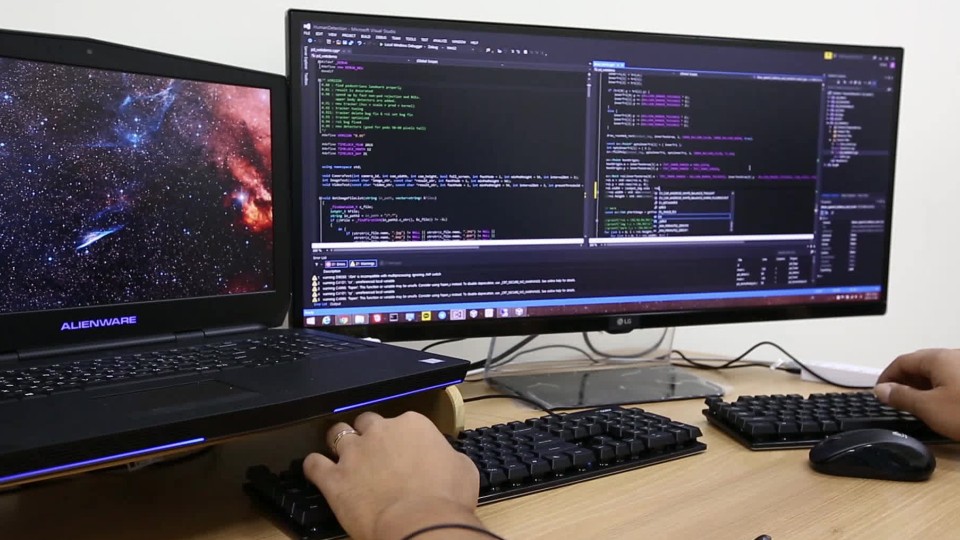Software Developers
Developer, Software Architect, Software Developer, Software Engineer
 Select a military branch to see samples.
Select a military branch to see samples.
Cyber Defense Operations; Cyber Defense Operations Apprentice, Knowledge Operations; Cyber Defense Operations Craftsman; Cyber Defense Operations Helper, Data Operations; Cyber Defense Operations Journeyman, Expeditionary Communications; Cyber Operations, Systems Operations; Developmental Engineer, C2ISREW; Developmental Engineer, Helicopter or EWO; Developmental Engineer, Trainer; Missile And Space Systems Maintenance Journeyman
Cyber Capabilities Developer Technician; Cyber Capabilities Development Officer
Information System Technician; Information Systems Management
Applications Developer; Modeling and Simulation Officer
Automatic Data Processing Intelligence Officer; Combat Systems - Software Design; Computer Network Capability Development; Cyber RandD Specialist; Digital Computer System Programmer; Fire Controlman (AEGIS); Fire Controlman; Information Systems Technician; RL - Special Duty Officer - Cyber Warfare Engineer; Sonar Technician (Surface)
Software Development Officer; Software Development Officer, Software Engineer; Software Development Specialists
What they do:
Research, design, and develop computer and network software or specialized utility programs. Analyze user needs and develop software solutions, applying principles and techniques of computer science, engineering, and mathematical analysis. Update software or enhance existing software capabilities. May work with computer hardware engineers to integrate hardware and software systems, and develop specifications and performance requirements. May maintain databases within an application area, working individually or coordinating database development as part of a team.
On the job, you would:
- Analyze user needs and software requirements to determine feasibility of design within time and cost constraints.
- Develop or direct software system testing or validation procedures, programming, or documentation.
- Confer with systems analysts, engineers, programmers and others to design systems and to obtain information on project limitations and capabilities, performance requirements and interfaces.
Knowledge
Engineering and Technology
- computers and electronics
Business
- customer service
Math and Science
- arithmetic, algebra, geometry, calculus, or statistics
Arts and Humanities
- English language
Skills
Basic Skills
- thinking about the pros and cons of different ways to solve a problem
- figuring out how to use new ideas or things
People and Technology Systems
- thinking about the pros and cons of different options and picking the best one
- figuring out how a system should work and how changes in the future will affect it
Problem Solving
- noticing a problem and figuring out the best way to solve it
Abilities
Verbal
- communicate by speaking
- listen and understand what people say
Ideas and Logic
- notice when problems happen
- use rules to solve problems
Personality
People interested in this work like activities that include ideas, thinking, and figuring things out.
They do well at jobs that need:
- Innovation
- Adaptability
- Achievement Orientation
- Intellectual Curiosity
- Attention to Detail
- Dependability
Technology
You might use software like this on the job:
Development environment software
- Oracle Java 2 Platform Enterprise Edition J2EE
- Oracle SQL Developer
Data base user interface and query software
- Blackboard software
- GraphQL
Object or component oriented development software
- Apache Spark
- TypeScript
Education
Education: (rated 4 of 5)
bachelor's degree
usually needed
usually needed
Job Outlook
Bright
New job opportunities are very likely in the future.
Explore More
- Computer Programmers
- Computer Systems Analysts
- Computer Systems Engineers/Architects
- Database Administrators
- Software Quality Assurance Analysts & Testers
You might like a career in one of these industries:
See more details at O*NET OnLine about Software Developers.






